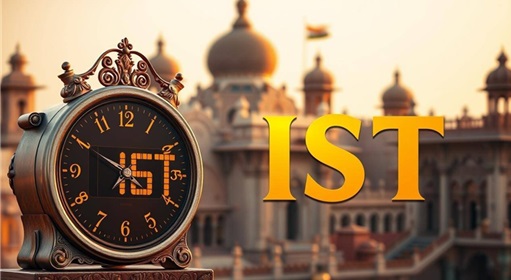(Prelims: Current Affairs)
(Mains, General Studies Paper-2: Government policies and interventions for development in various sectors and issues arising out of their design and implementation) |

Context
The concept of ‘One Nation, One Time’ proposed by Prime Minister Modi is now taking concrete shape. The Department of Consumer Affairs has announced that rules will soon be notified to make Indian Standard Time (IST) mandatory for all activities.
Background of Indian Standard Time (IST)
- Indian Standard Time (IST) is set +5:30 hours ahead of Coordinated Universal Time (UTC).
- Time in India is set by CSIR-National Physical Laboratory (CSIR-NPL) which operates the time with an atomic clock.
About the proposed Integrated IST Initiative
- Announcement: The Union Ministry of Consumer Affairs has announced on June 18, 2025 that the government is making it mandatory to use only IST-based time in legal, administrative and commercial activities.
- Under this initiative:
- All government and private institutions will time-sync according to IST.
- The use of alternative (foreign) time references will be prohibited.
- Accuracy up to the nanosecond level will be ensured in sectors such as telecommunications.
- ISRO, CSIR-NPL and the Ministry of Consumer Affairs will jointly notify new rules for time coordination.
- Significance: This will make India's timekeeping infrastructure legally enforceable, digitally secure and in line with global benchmarks.
Need for One Nation, One Time Initiative
Digital Security and Accuracy
- In the digital age, time coordination is important for various sectors such as banking, stock trading and digital transactions.
- For example, accuracy of time in electricity billing can protect consumers from unfair charges.
National Security
- The need to keep the time standard independent of GPS became evident in recent military operations like ‘Operation Sindoor’.
- Dependence on foreign satellites can pose a threat to national security as GPS signals are susceptible to manipulation.
- The indigenous time standard developed by ISRO and CSIR-NPL will ensure self-reliance in defence and strategic activities.
Economic and Administrative Efficiency
- At present, foreign sources are used for time reference in various sectors, which can cause inconsistency and delays.
- Mandatory use of IST will bring uniformity in all legal, commercial and administrative activities.
- In sectors like telecom, railways and aviation (where even nanosecond accuracy is important), a unified time standard will increase operational efficiency.
Strengthening Cyber Security
- Accurate time records are essential in the investigation of cyber crimes.
- The use of indigenous IST will ensure accurate timestamping of digital activities, making the investigation process faster and reliable.
Related Challenges
Demand from North-Eastern States
The north-eastern states of the country already have demands for time lag, which may pose a challenge to the concept of 'One Nation-One Time'.
Lack of Technical Infrastructure
- Advanced technical infrastructure is required to implement the indigenous time standard.
- CSIR-NPL and ISRO will have to establish a strong network of satellites and ground stations for time reference.
Awareness and Compliance
- There is lack of awareness among the private sector and the general public about the importance of IST and its mandatory use. The government will have to launch extensive publicity and training programs.
- Strict monitoring and punitive measures will be required to enforce the ban on alternative time references.
Challenge of Global Coordination
India's economy is deeply interlinked with global markets. Mandatory use of IST may pose coordination challenges in international transactions and communications.
Government initiatives
- Notification of rules: Department of Consumer Affairs will notify rules to coordinate all activities with IST. Use of alternate time references will be completely banned.
- Development of indigenous technology: ISRO and CSIR-NPL are jointly developing an indigenous time reference system that will eliminate dependence on foreign sources like GPS.
- Sector-specific guidelines: Special guidelines are being issued for telecom, defence and financial sectors to ensure nanosecond-level accuracy.
Conclusion
‘One Nation, One Time’ is a transformational initiative for India that will not only enhance technical and administrative efficiency but also strengthen national security and economic stability. This initiative reflects India’s aspiration for self-reliance and global leadership. However, its successful implementation will require technical infrastructure, awareness and stringent compliance mechanisms.